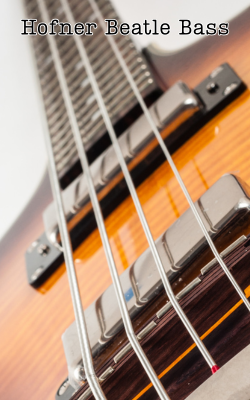Ah, the elusive art of choosing the "right" string in the world of bass and guitar. Players often find themselves at the crossroad of the familiar and the foreign. One option that sits pulsating with potentially glorious sound is the flatwound string. But what exactly are flatwound bass or guitar strings, and why should you sit up and take notice? Allow me to untangle this stringy conundrum, sans drama or over-tension.
The Basics: What Are Flatwound Strings?
Flatwound strings, as the name suggests, are crafted with a flat ribbon winding around a core (usually made of steel). This winding contrasts sharply with their roundwound counterparts, which are hewn from round wire, providing a slightly ‘bumpier’ feel akin to a rollercoaster ride through a sound wave. While roundwound strings produce a brighter, more overtone-rich sound, flatwound strings offer a smooth, warm tone that harkens back to the golden age of jazz and the soulful resonance of classic blues. 
The Construction Mechanics: Getting Technical
The manufacturing of flatwound strings is a labor of love. The flat wire, meticulously wrapped around a round core, provides a surface that is less abrasive than roundwound strings. This smooth surface grants players a more effortless feel while sliding up and down the fretboard—akin to skating on freshly Zambonied ice instead of rocky terrain.
While that smoothness is stellar for reducing finger noise, it also means that flatwound strings have fewer overtones in their sound profile. In layman’s terms? You get less brightness and shimmer, but the trade-off is a warm, plump tone that beautifully suits some styles of music.
A Symphony of Styles: Who Uses Flatwound Strings?
Flatwound strings have found a cozy home in the hands of masters of various genres. Bassists like Paul McCartney (beatle bass strings) and jazz legends such as Charlie Haden embraced the flatwound vibe for that rich, thumpy goodness that blends so well with the band without overshadowing the melody. Likewise, guitarists like Wes Montgomery and rockabilly star Uncle Tupelo swore by flatwounds for their punchy yet mellow tone. If you fancy jazz or blues, flatwounds might just sprinkle some fairy dust on your sound. Flatwound strings can be used in other genres, however one should take note that bending flatwound strings are not easy, hence the thicker gauges on most sets. If you often use a slide on your electric guitar, flatwound strings are a perfect match to effortlessly glide across the strings.
Pros vs. Cons: Know Before You Dazzle
Like every choice in life, there are perks and pebbles in the shoes of flatwound strings. Let’s break it down:
Pros:
1. Smooth Feel: Perfect for players who appreciate a gliding experience when playing.
2. Reduced Finger Noise: A quieter option when you're hustling through quick runs or sultry slides.
3. Classic Sound: Offers a rich, warm tone that’s often sought after in jazz and blues.
4. Longer Lifespan: Less grime adheres to the flat surface, meaning you may extend string life without compromising sound quality.
Cons:
1. Less Brightness: You might find it challenging to summon that jangly, cutting edge sound beloved in many genres.
2. Limited Variety: They may not provide the wide range of textures and timbres that roundwound strings can offer.
3. Heavy Feel: Thin-skinned shredder? Beware of the added mass of flatwound strings; you might feel weighed down.
Final Thoughts: To Flatwound or Not to Flatwound?
Ultimately, the journey into the world of flatwound strings is about personal preference. Are you a bass player looking to dive into a smooth, thumping resonance that captures the essence of a jazz club? Or perhaps you’re a guitarist feeling nostalgic for that rich, lush tone of vintage rock? Flatwounds could be your ticket!
In the end, experimenting with strings is much like buying a guitar: there’s no one right answer, only a melody of choices waiting to harmonize with your unique sound. So, the next time you’re perusing the pages at the f-hole, perhaps give flatwound strings a shot. Embrace the smoothness! Embrace the warmth!
Flatwound Bass String Suggestrions
Two suggestions for bass guitar would be the stainless steel GHS Precision Flats and for ease of playing another great option is the La Bella Low Tension Flats available in long, medium and short scale. To see the full list of flatwound bass strings click here.
Flatwound Guitar String Suggestrions
For a classic set of flatwound guitar strings, one can't go wrong with either the Thomastik-Infeld Jazz Swing series or the D'Addario Chromes. To see the full list of flatwound guitar strings click here.
If you wanted to try flatwound strings on your daily rocker, we suggest the GHS Precision Flats 9-42. They are also made of stainless steel to brighten up the tone and feature a plain 3rd G string, where most other flatwound sets have a wound 3rd.

